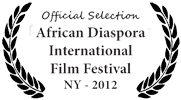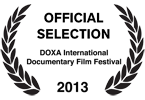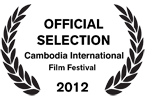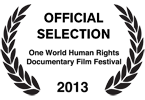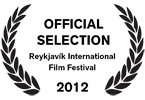About the Film
SISTER SYNOPSIS:
Sister tells the story of health workers from Ethiopia, Cambodia and Haiti, exploring how they find meaning while working under difficult circumstances and revealing maternal and newborn death as a human rights issue.
An intimate portrait of a global crisis woven from indigenous scenery and vérité footage, Sister captures colors, sights and sounds while exploring dedicated health workers and those in their care through intense and beautiful moments.
Goitom Berhane, a charismatic Ethiopian health officer in residency in a Masters of Surgery and Obstetrics Program at a rural hospital. Pum Mach, a direct but gentle rural midwife living and working within a heavily land mined area of Cambodia. And Madam Bwa, a captivating Haitian midwife, herself fighting poverty, working in a volatile, densely populated urban area.
Their stories reveal strategies in place to improve maternal health and address the crisis in maternal and newborn mortality to show when the strategies work, when they don't work and how the lack of transport, communication and education create weak links along the way.
These are some of the stories behind the statistics.
THE FILMMAKERS
BRENDA DAVIS - DIRECTOR/PRODUCER
Brenda Davis is a Canadian citizen who grew up in Toronto and is a U.S. permanent resident currently living in New York City. Brenda has over 20 years experience in various aspects of filmmaking. She has worked as a script supervisor, a script consultant, and extensively as a researcher. She is a member of the researchers organization FOCAL International.
Brenda has made five short films for NGOs shot as a one-person crew. These projects are the foundation of Brenda's filmmaking style: vérité documentary rooted in social activism. SISTER is her first feature documentary.
ALEXANDRA SWATI GUILD - DIRECTOR OF PHOTGRAPHY/CO- PRODUCER
Swati Guild is a filmmaker and artist with a global perspective. Her projects span numerous media including documentary films, experimental video and street photography. Since graduating from the University of Pennsylvania in 2005, her documentary work has been broadcast internationally on Al Jazeera and Record TV, featured in film festivals in North America, Europe and Africa and used by nonprofits and community groups around the world.
ALISON SHURMAN - EDITOR
New York based editor Alison Shurman has been editing documentary films for the last five years. She broke onto the scene in 2008 as Editor of the critically acclaimed, Tribeca Film Festival favorite RUN FOR YOUR LIFE, about the founder of the NYC Marathon. The film was rated one of the top five sports movies of all time by Runner's World Magazine, and recently aired on WNET Channel 13. She was the Additional Editor of the Emmy-nominated documentary PRESSURE COOKER. Ms. Shurman studied filmmaking and editing at The New York Film Academy and The Edit Center in New York City.
DIRECTOR'S STATEMENT
Brenda Davis, Director / Producer
I'm a mother, daughter and a sister. I am the eighth of eight children born by an emergency cesarean section, which resulted in my mother's emergency hysterectomy at age 33.
The subject of this film has been circling me for a long time. My family is from a remote part of Canada in Nova Scotia. My grandmother, Martha, gave birth to 16 children - four were stillborn and another died at 2 years old. Her first child died when she was 19 and the last one died when she was 39, I remember thinking about it a lot as a child and since then.
I first picked up a camera in 2006 and shortly afterwards participated in an NGO/Filmmaker collaborative workshop in Uganda. The first things I shot there were an emergency cesarean section and an interview with a pregnant woman whose baby was stillborn due to malaria.
In 2008, I documented the Gotland Course in Emergency Obstetric Care for mid-level health workers from Africa and Asia. A renowned Swedish Obstetrician and Gynecologist, Dr. Staffan Bergstrom, known for his background in training maternal health workers in developing countries runs the course. Dr. Bergstrom literally wrote the book on the subject. (Maternal Care in Developing Countries http://www.ncbi.nlm.nih.gov/pmc/articles/PMC1279524)
It was while documenting the Gotland Course that I met an Ethiopian Health Officer, Goitom Berhane, who had been working at a rural hospital and was in charge of all obstetric emergencies. And it was while I was transcribing Goitom's interview that realized I was going to make a film about maternal and newborn mortality.
Goitom Berhane shared during an interview: "When an innocent mother, because of her pregnancy, is dying from lack of appropriate care in the right time in the right place with the right skill. That is what is actually happening in the developing world."
Later he said: 'There is not that much good incentive for what you are doing day and night, being called every night, three or four times, so whenever a dying mother survives, this is what enlightens you, this is what makes you happy and gives you meaning and sense to your life, that you are living a meaningful life.'
About the Subject
Pregnancy-related death is defined as the death of a woman while pregnant or within 42 days of termination of pregnancy, irrespective of the cause of death.
The major direct causes of maternal morbidity and mortality include hemorrhage, infection, high blood pressure, unsafe abortion, and obstructed labor.
Some non-medical causes of maternal mortality include: poverty, distance to health care, lack of information, inadequate services, and cultural practice such as child marriage. Lack of access to safe abortion, family planning, skilled birth attendants, health facilities, clean water, safe and clean birthing environment are also common causes. A woman's status in her family and community is closely linked to the likelihood of her receiving proper medical care.
Maternal Mortality Ratio is the ratio of the number of maternal deaths per 100,000 live births. The MMR is used as a measure of the quality of a health care system.
Maternal Mortality Rate is the lifetime risk of a women dying from a pregnancy and childbirth related death. For example: In Ethiopia, 1 in 27 women die from childbirth-related causes. In Cambodia, 1 in 48 women die from childbirth-related causes. In Haiti, 1 in 44 women die from childbirth-related causes. In the U.S., 1 in 4,800 women die from childbirth-related causes. In Sweden, 1 in 17,400 women die from childbirth-related causes.
http://www.who.int/bulletin/volumes/87/4/07-048280/en/
THREE DELAYS
Delay in decision to seek care
Failure to recognize complications, acceptance of maternal death, low status of women, socio-cultural barriers to seeking care: women's mobility, ability to command resources, decision-making abilities, beliefs and practices surrounding childbirth and delivery, nutrition and education
Delay in reaching care
Poor roads, lack of bridges, mountains, islands, rivers - poor organization
Delay in receiving care
Inadequate facilities, supplies, personnel, poor training and motivation of personnel, lack of finances
HEALTHWORKERS
Emergency Surgical Health Officer. Goitom Berhane graduated as an Emergency Surgical Health Officer in January 2012 and has a degree in Public Health. As an Emergency Surgical Health Officer Goitom meets women when there is already a trauma in the pregnancy.
Midwife. Pum Mach is 1 of only 2,014 registered midwives in Cambodia. Midwives are trained in maternal assisted deliveries, family planning, antenatal care, newborn care and newborn resuscitation, prevention of mother-to-child transmissions of HIV, counseling and health and nutritional education. In Cambodia, where 80% of the population is rural, the shortage of midwives means many mothers do not have access to a skilled attendant. The Health Center that Pum Mach works at serves thousands of rural families yet runs on generator power and does not have blood bank facilities.
Traditional Birth Attendant. Madam Bwa - As a Traditional Birth Attendant (TBA), Madam Bwa has no formal medical training, but provides the majority of primary maternal care in her community.
Health Extension Workers. Hirity Belay is one of 1,220 Health Extension Workers in Tigray. Health Extension Workers are female high school graduates, who completed a one-year training course in hygiene, maternal and family health, disease prevention and control and nutrition. Health Extension Workers bring care to most rural women.
READ MORE ABOUT MATERNAL AND NEWBORN MORTALITY
- Women Who Die Needlessly: Maternal Mortality as a Human Rights Issue http://righttomaternalhealth.org/resource/women-who-die-needlessly
- The Lancet The Stillbirth Series http://www.lancet.com/series/stillbirth
- Non-physician clinicians in 47 sub-Saharan African countries http://www.thelancet.com/journals/lancet/article/PIIS0140-6736(07)60785-5/fulltext
- For Haiti, Lighting Up the Camps and 'Smile Clinics' http://www.unfpa.org/public/home/news/pid/9780
- The Long Wait – Reproductive Health Care in Haiti http://rhrc.org/resources/JSI_HaitiReport_2009_compressed.pdf
- UNFPA Fact Sheet: Motherhood And Human Rights http://www.unfpa.org/public/home/factsheets/pid/3851
- UNFPA's Contribution to the Joint United Nations Accelerated Support to Countries in Maternal and Newborn Health http://www.unfpa.org/webdav/site/global/shared/documents/publications/2009/mhtf_business_plan.pdf
- The Maternal Health Thematic Fund http://www.unfpa.org/webdav/site/global/shared/documents/publications/2011/Global_Report_2010_MH.pdf
- RAISE Fact Sheet on Emergency Obstetric Care RAISE (Reproductive Health Access, Information and Services in Emergencies) http://www.raiseinitiative.org/library/pdf/fs_emoc.pdf



